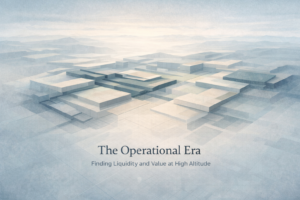What LPs want
Private equity conferences in 2024 highlighted a critical theme: understanding what LPs really want. As private markets evolve, LPs are becoming increasingly selective, reassessing their portfolios, and demanding more from GPs. From fair terms to transparent strategies, LPs are setting a higher bar—and GPs must adapt.
This post dives into key takeaways on LP preferences, their evolving expectations, and what GPs need to do to remain competitive in a changing landscape.
What LPs Want – Insights from the End-of-Year Conferences
LPs are generally ‘ok’ with CVs / liquidity solutions but there was strong agreement that they should be used for the right reasons, i.e. not to sell an asset because you cannot get rid of it any other way.
In other words, GPs need to be able to rationalise to LPs why they are opting for these solutions and make it worthwhile for LPs to partake.
In line with this, LPs noted that the process around ad CV and can be rather opaque which makes them ‘suspicious’! Their words, not mine and probably not great if you are hoping they will use the proceeds to re-up.
LPs are continuously reassessing their portfolios
There are no ‘easy’ re-ups and LPs may cycle out of GPs’ funds that are growing out of the LPs’ investment areas. Many LPs are still consolidating the GP roster, but, and this is good news at a time where it seems that the largest GPs are hoovering up all the available capital, many LPs were also clear that there is room for new managers.
As an example, the EIF noted that the market is evolving rapidly, which for them is leading to accelerated rejuvenation of their portfolio. They have gone from a historic 30% new managers per annum to upward of 60% in a portfolio of 600 relationships and 1,600 funds. Thus, good news for GPs, there is, as is also the EIF mandate, room for new GPs that support the strategy of the EIF, i.e. EU priorities, which is often easier for new GPs, who can move faster, than for the existing GPs.
LPs were in very clear agreement that terms should be fair
Something that should be easy to do if there is good communication, clear objectives and transparency. Also, and I think this is worth noting for GPs, LPs explicitly mentioned that it is important that GPs don’t push too far in one direction. It should still be a carry and not a fee game.
A last point in this panel that LPs made to GPs was, that if a GP has a specific strategy is it really important that they are serious about it. I.e. how will the GP actually do this more than just a nice marketing message. In other words as an example, beware of green washing the LPs are aware of this and paying attention.
LPs were concerned that some GPs have seemingly started to opt for co-investment vehicles and potentially investing alongside other GPs so as to avoid relieving LPs of scarce liquidity and hopefully ensuring that distributions were instead used for re-upping.
LPs (finally) recognise that benchmarks are close to useless
This should be common knowledge, but at least more and more LPs are finally starting to recognize the limitations of traditional benchmarks and are relying less on them.
Proprietary benchmarks are an alternative to the readily available or GP generated benchmarks but constructing them is often cumbersome and relies on having sufficient high-quality data. As a ‘short cut’ many LPs are starting to use Public Market Equivalent (PMEs) instead.
There is also increasingly broad recognition among LPs that access to first-hand data, that enables deeper portfolio analysis and insights, is far more valuable than relying on data vendors whose databases are of questionable depth and quality.
Finally, LPs are starting to look at metrics like individual company growth and leverage comparing them against listed companies. This is an interesting development and can potentially provide a nuanced perspective.
Unfortunately, more high-quality data, proprietary benchmarks, and company level metrics and analysis, requires significant resources and effort, which may not always be possible for all LPs.
However, to at least make more informed decisions and possibly drive better risk adjusted returns it is increasingly critical that LPs can do this.
At Balentic we saw this need and we are working on several solutions that will help all LPs to do this and more, faster and cost efficiently.
Some final thoughts: As LPs refine their strategies and reassess their portfolios, the expectations placed on GPs will only grow. Meeting these demands requires more than strong performance; it calls for transparency, alignment, and a commitment to delivering real value.
For GPs, understanding LP needs isn’t just important—it’s essential for building trust and securing commitments in an increasingly competitive market.
The opportunity to create efficiency is everywhere…

Stay Illiquid
Kasper Wichmann, CEO Balentic
More Insights
Balentic Edge
Sign up to keep up to date with the latest news and updates.
© 2025 Balentic ApS. CVR: 44034255. All rights reserved.
Privacy Policy | Terms of Service
The Balentic website and Orca are, and are expected to continue to be, under development. Consequently, some of the features described in this Overview and/or on the website may not yet be available or may work differently. Some features may furthermore not be available to all users.


